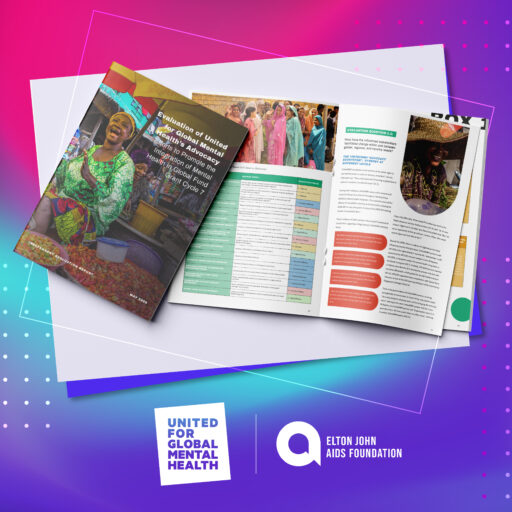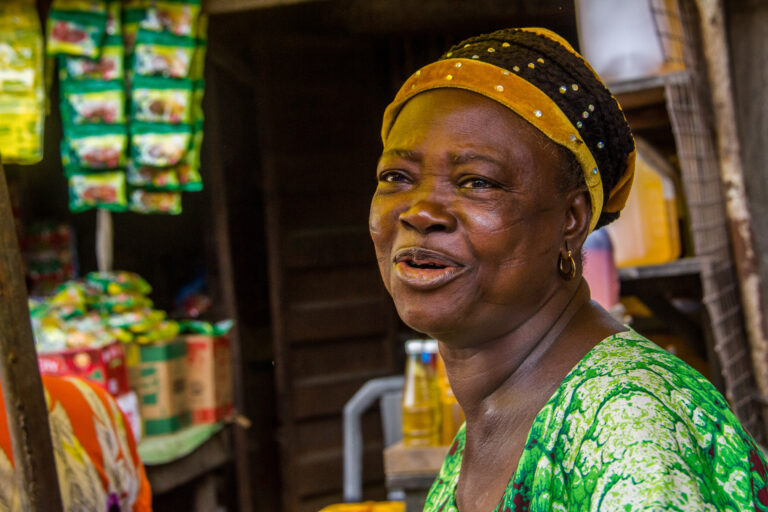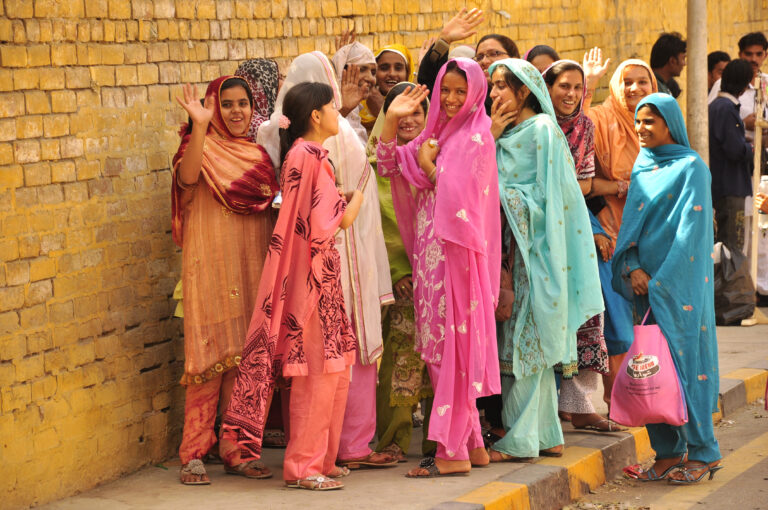Evaluation of United for Global Mental Health’s Advocacy Efforts to Promote the Integration of Mental Health in Global Fund Grant Cycle 7

Executive Summary
The world is experiencing an epidemiological transition in the global burden of disease. Infectious diseases such as HIV, TB and malaria are responsible for fewer and fewer disability-adjusted life years, while non-communicable diseases, including mental health conditions, are on the rise. Despite the increasing burden, funding for mental health remains far below the need, receiving just 0.3% of development aid for health.
For the first time in its 20-year history, the Global Fund to Fight AIDS, Tuberculosis and Malaria (the Global Fund) has included mental health as part of its Strategy 2023-2028. Given the co-morbidity of mental health conditions and HIV, TB and malaria, these issues must be addressed in an integrated manner. The risk of developing depression is two and three times higher for people living with HIV and TB, respectively.
Since 2020, United for Global Mental Health (UnitedGMH) has ramped up advocacy efforts at the global, regional, and national levels in support of the Global Fund’s strategic prioritisation of mental health. From 2022-2025, UnitedGMH intensified efforts in 32 priority countries to influence mental health integration in Grant Cycle 7 (GC7)—the Global Fund’s largest allocation cycle yet, worth some $13.1 billion.

This evaluation examines the effectiveness of UnitedGMH’s advocacy efforts, analyses their reach and engagement, explores opportunities for adaptability and learning, and considers sustainability and value for money. Using an outcome harvesting methodology, the evaluation focused on four of UnitedGMH’s ‘high-touch’ countries: Nigeria, Pakistan, the Philippines and South Africa. A desk review of funding requests and other key documents was conducted, complimented by interviews with 48 stakeholders.
UnitedGMH’s advocacy efforts are estimated to have directly reached >40,000 people, and indirectly >20 million people (including Global Fund beneficiaries). These people benefited from improved mental health knowledge, expanded access to mental health services, and/or opportunities to further integrate mental health into their work.
As a result, there is increased prioritisation of mental health in the Global Fund funding requests from Nigeria, Pakistan, the Philippines and South Africa. The total number of mental health mentions increased from 19 in Grant Cycle 5 (2017-2019), to 35 in Grant Cycle 6 (2020-2022), to 120 in Grant Cycle 7 (2023-2025).
The ‘dosage’ of UnitedGMH advocacy made a difference to the outcomes. Mental health was mentioned on average 28 times in GC7 requests from high-touch countries, 20 times in countries that the Interagency Working Group (IAWG) on Mental Health also prioritised, 9 times in medium-touch countries, 11 times in light-touch countries, and 5 times in non-UnitedGMH countries. This relationship is statistically significant (r = 0.93, p = 0.01).
Based triangulated data (trends, dosage, citations, testimonials, and counterfactuals), there is a strong case of direct attribution to UnitedGMH’s advocacy for the improved integration of mental health into HIV and TB Global Fund grants for GC7. UnitedGMH and its partners have had direct influence over national strategic plans, country dialogue and prioritisation, Global Fund funding requests, Global Fund Secretariat staff, Global Fund implementers, and CCM members.
There is an effective ‘advocacy ecosystem’ among UnitedGMH partners at different levels. At least four IAWG members advanced mental health integration at country level. Regional partners supported mental health integration in GC7 in at least two country-level processes through their network. In two countries, national partners collaborated and played off each other’s strengths.

UnitedGMH has been highly effective at influencing the Global Fund Secretariat’s strategy, policies and guidance, and at capitalising on mobilisation moments such as conferences or high-level meetings to raise the profile of mental health integration in HIV and TB responses. Influence among country-level decision-makers has had mixed results.
This evaluation found limited evidence of UnitedGMH or its partners conducting nuanced country-level advocacy for specific mental health interventions for priority key and vulnerable populations (KVPs). There is consensus among stakeholders interviewed for this evaluation that UnitedGMH may be more effective with tailored advocacy agendas in each of their high-touch countries.
Indeed, mental health is integrated for some KVPs but not all. In GC7, mental health is integrated for 9/15 (60%) prioritised KVPs in Nigeria, 8/14 (57%) in Pakistan, 4/14 (29%) in the Philippines, and 14/18 (78%) in South Africa. Aside from South Africa, mental health is not meaningfully integrated into TB funding requests or prioritised for TB key populations. This is a significant missed opportunity.
The advocacy grant from EJAF to UnitedGMH may have directly or indirectly influenced the allocation of ∼$37.7 million in HIV and TB funding for integrated mental health activities, including $27.7 million in GC7 grants. It is estimated that for every $1 invested in UnitedGMH advocacy, $75 in mental health funding was potentially yielded.
Despite this success, mental health integration is a risk of being deprioritized given the shrinking fiscal landscape and competing priorities.
To focus this work going forward in a rapidly changing environment, the following strategic recommendations are presented:
- Continue advocating for mental health integration in Global Fund grants.
- Intensify efforts at the national level, while maintaining the tri-level advocacy ecosystem (global, regional and national).
- Develop a Toolkit on Integrating Mental Health in GC8 Funding Requests.
- Sustain advocacy after funding request submission, focusing on reprogramming opportunities for mental health in year two and three of Global Fund grants.
- Tailor advocacy messaging to specific contexts by producing differentiated advocacy briefs or fact sheets for each high-touch country.
- Consider adding another part-time member to UnitedGMH’s HIV and TB advocacy team, based in the African region.
- Strengthen the generation and use of data on mental health and HIV/TB to bolster advocacy in priority countries.
- Leverage the findings from this evaluation to publish a brief summary report on mental health integration in Global Fund grants.
- Align mental health advocacy with the HIV and TB sustainability agenda.
- Strengthen the capacity of mental health technical assistance providers.